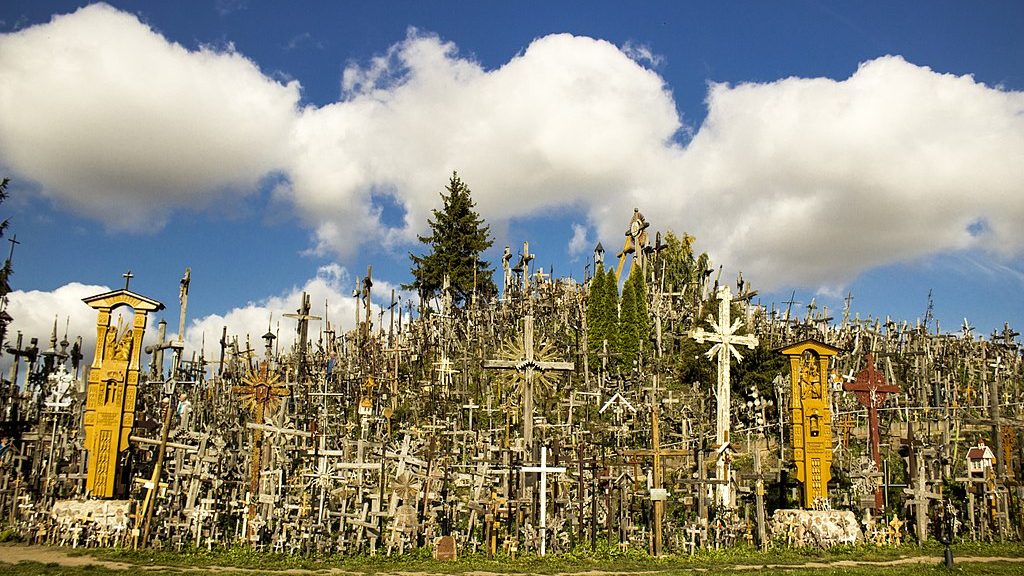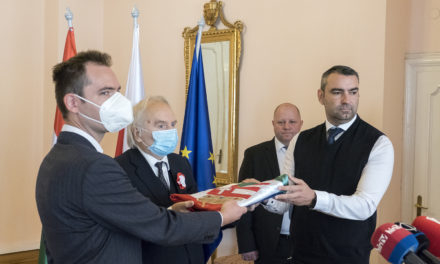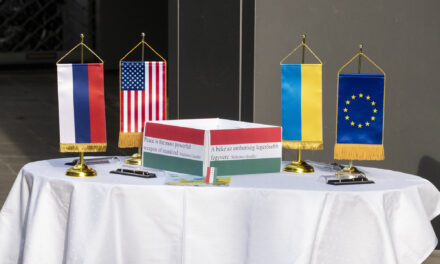Brussels either does not know the history of our region, or what is much worse, it is consciously trying to destroy Europe.
In the October 11, 2024 issue of MN, Katalin Botos summarized the lessons of the conversation (Weltwoche) between Prime Minister Viktor Orbán and former German Chancellor G. Schröder in six points. The first point: "Christian nations are killing each other in Europe, and meanwhile we are letting the Muslim world in." Unfortunately, this practice has several centuries of precedent in the history of the Balkans and Hungary.
In Anatolia, the Seljuk Empire was crushed by the Mongols in 1243, and the empire broke up into small emirates. One of these was the Ottoman Emirate (1286-1326), no larger than Transdanubia, named after the founder of the dynasty, right across from Constantinople.
This insignificant emirate became a world power in a hundred years as a result of the series of omissions and sins of the Christian world.
In 1204, the Pope announced a crusade to recapture Jerusalem. The Crusaders gathered in Constantinople, but they were dazzled by the wealth of the city. They raided the city, robbing and killing, and overthrowing the power of the emperor, they created the begging Latin empire. In 1261, the Byzantine "empire" was restored, but it was only a shadow of its former self.
The first great sin of the Christian world was the complete weakening of the Balkan stronghold of Christianity.
In 1349, Sultan Orhán (1326-62) supported his Byzantine emperor's father-in-law in the fight against the Serbs with a Turkish army of twenty thousand, and with this campaign the Ottomans got to know the Balkans well. When another battle for the throne broke out in Byzantium, Sultan Orhán's son, Süleymán Pasha, already established a bridgehead in Europe, on the Gallipoli peninsula, in 1356. The rapid conquest of the Balkans began with the Byzantine-Serbian Christian conflict and the crossing of Ottoman auxiliary troops to Europe. And in 1389, the Ottomans defeated the Serbs at Rigómező (Kosovo), and thus Hungary became a border with the Turkish empire.
The second great sin of the Christian world was that the Byzantines sent Muslim auxiliaries from Anatolia across the Bosphorus to the Balkan Peninsula for a war between two Christian countries, which they then mercilessly exploited.
But fate played into the hands of Christianity. In 1402, Timur Lenk destroyed the Ottomans at Ankara. Here was the opportunity to expel the Ottomans from the Balkans, but instead the Council of Constance (1414-18) - under the leadership of King Sigismund of Hungary and German-Roman Emperor - dealt with the problem of Hussiteism. And János Husz was burned despite his confession, and the religious war broke out in Central Europe.
The great failure of the Christian world was the failure to take advantage of the historical opportunity mentioned above, and its third great sin was the religious war between Christians.
Timur Lenk's plague was weathered by the Ottomans in a generation. The Ottomans built a fortress on the Bosphorus, first on the Asian side and then on the European side, so that in the event of a siege of Constantinople, the city could not be helped from the Black Sea. In this tragic situation VIII. The Byzantine Emperor John (1425-48) again offered the Pope the religious union in return for military protection. An agreement was reached at the synod meeting in Ferrara and Florence (1439-45), but the Byzantine emperor did not dare to announce the document of the union in the Hagia Sophia, so it did not become legally binding. Byzantium was left alone and tried to defend the city with only eight thousand defenders. Muhammad, who conquered the city in 1453, occupied it, and in 1456, the sultan besieged Nándorfehérvár, but without success.
The fourth great sin of Christianity was the pope's inability to provide unconditional help to defend the Balkan bastion of Christianity.
In 1517, Márton Luther nailed his 95 theses to the gate of the castle church in Wittenberg, as a result of which another religious war broke out in the heart of Europe. Thus, after Byzantium, Hungary was also left alone in the fight against the Ottoman conquest. In 1526, the strongest military power in the world at the time won on the field of Mohács.
During the brutal Ottoman expansion, the outbreak of the Catholic-Protestant religious war was the fifth great sin of the Christian world.
The Transylvanian lords did not trust the help from the West, so II. A Hungarian king, János Szapolyai, was chosen to succeed Louis. On the other hand, those living in the west elected the younger brother of the German-Roman Emperor Charles V, Ferdinand I, as king, trusting in the emperor's help. But in 1527, the emperor's army occupied and plundered Rome instead of the Turks, and Hungary became a buffer state for 150 years.
This role of a tyrant state was the sixth great sin of the Christian world, and Hungary perished in it.
Instead of the help of the Christian countries, the Turkish expansion was limited by the fact that the Sultan's army could only leave Rumelia when the snow in the Balkan Mountains had melted, and it had to return before the new snow. That border was Vienna.
The series of sins of the Christian world contributed to the fact that an insignificant emirate became a world power, and most of the Balkans came under five hundred years of Ottoman rule. And Hungary lost half of its Hungarian population in the two-hundred-year war from the Dózsa Peasants' War (1514) to the Peace of Pozseravac (1718), which also liberated Temesköz. Its place was taken by spontaneous immigrants and settlers.
As a result of all this, the proportion of Hungarians fell from 80 percent in the Matthias era to 40 percent. From there it was a straight road to Trianon.
Today, the historical situation is similar in that a war between two Christian countries has been going on in Europe for the third year now, which Brussels supports and incites with all means. And Brussels wants to remedy Europe's demographic deficit by settling Muslim masses, which has a similar consequence as the crossing of Muslim auxiliaries from Anatolia to Europe in the 14th century. century.
It follows from all of this that Brussels either does not know the history of our region, or what is much worse, it is consciously trying to destroy Europe.
An example of self-surrender is that a few years ago the city of Vienna did not allow the installation of a statue of the Polish king János Sobiesky, who freed Vienna from the siege of Mustafa Kara in 1683. Reason: the sensitivity of Muslim immigrants!
Pál Bartha ny. forest engineer
Telki
Cover image source: Wikimedia Commons













